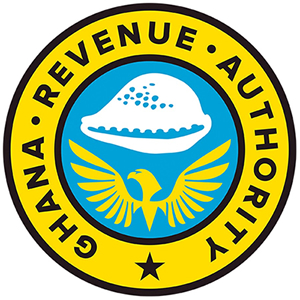Netherlands to build capacity of GRA staff
 The Ghana Revenue Authority (GRA) on Friday signed a Memorandum of Understanding (MoU) with the Netherlands Tax and Customs Administration to build the capacity of personnel on transfer pricing and risk-based audit. The MOU will span 18 months starting from March 2020.
The Ghana Revenue Authority (GRA) on Friday signed a Memorandum of Understanding (MoU) with the Netherlands Tax and Customs Administration to build the capacity of personnel on transfer pricing and risk-based audit. The MOU will span 18 months starting from March 2020.
Under the MoU, GRA officials would be empowered in the area of Domestic Tax Revenue Division; risk-based audits while enhancing the skills of Transfer Pricing Unit of the Large Taxpayer Office.
Transfer pricing is the process where multinational entities transact with those entities that have common controlling power or the related parties and the profit earned by such proceeds is transferred to the country which has the least tax blocks.
Signing the agreement in Accra; the Reverend Ammishaddai Owusu-Amoah, GRA Acting Commissioner-General, said transfer pricing was an aspect of tax avoidance where multinational companies were able to exploit to reduce tax payment.
He commended the Netherlands for the support in the area of transfer pricing since the risks that came with auditing large and complex businesses were associated with transfer pricing issues.
Rev. Owusu-Amoah said the signing of the agreement was timely as the Authority had earmarked on a number of measures for its transformation agenda.
He said the GRA over the years had had a very cordial relationship with the Netherlands.
He said the Authority would tap into the knowledge and experience of the Netherlands officials to assist in building the capacity of audit staff to enable them to appreciate techniques in auditing.
He said such skills were geared towards reducing abuse and ultimately rake in the needed revenue towards achieving the GH¢55 billion target for the year.
He urged the officials of GRA, who would be working with the Netherlands team to take advantage of the opportunity, learn all that they could and become well equipped to handle complex audits easily and effectively.
Mr Ron Strikker, the Netherlands Ambassador to Ghana, who signed the agreement on behalf of his Country, said transfer pricing was very important for countries like Ghana but also for the Netherlands.
It was the desire of every country for companies to pay their fair share of taxes and ensuring that taxes were fixed at the accurate level, adding that the government of Netherlands was very clear on that policy, he said.
Mr Strikker explained that transfer pricing focused on transactions between companies – a mother company and a daughter company – with the risk of not accurately pricing the services by the mother company to the daughter company, which ought to be avoided.
He said profit should be fixed at just and accurate level.
He said with the issues of transfer pricing was attracting global attention and the Netherlands was committed to assisting Ghana with technical expertise in that direction.
He said the MOU was one of the many cooperation that the Netherlands had with Ghana on taxation, noting that, there had been cooperation on compliance and risk management, which the Country had been cooperating on for many years.
The Netherlands also have in place taxation revenue for economic enhancement with a focus on property tax in 32 Municipalities, which is between Ghana’s Ministries of Finance and Local Government and Rural Development and the Dutch Association of Municipalities.
Mr Nathan Nettey, Deputy Commissioner, Policy and Programmes, Domestic Tax Revenue Division, said Officers from the Transfer Pricing Unit would hand in hand with Tax Officers from the Netherlands Tax and Customs Administration during the period of the MoU.
He said the team would visit some multinationals that have been risk profiled to carry out audits, which would afford the officers the opportunity to learn from each other to ensure that the required revenue was raked from such companies.
Source: GNA
